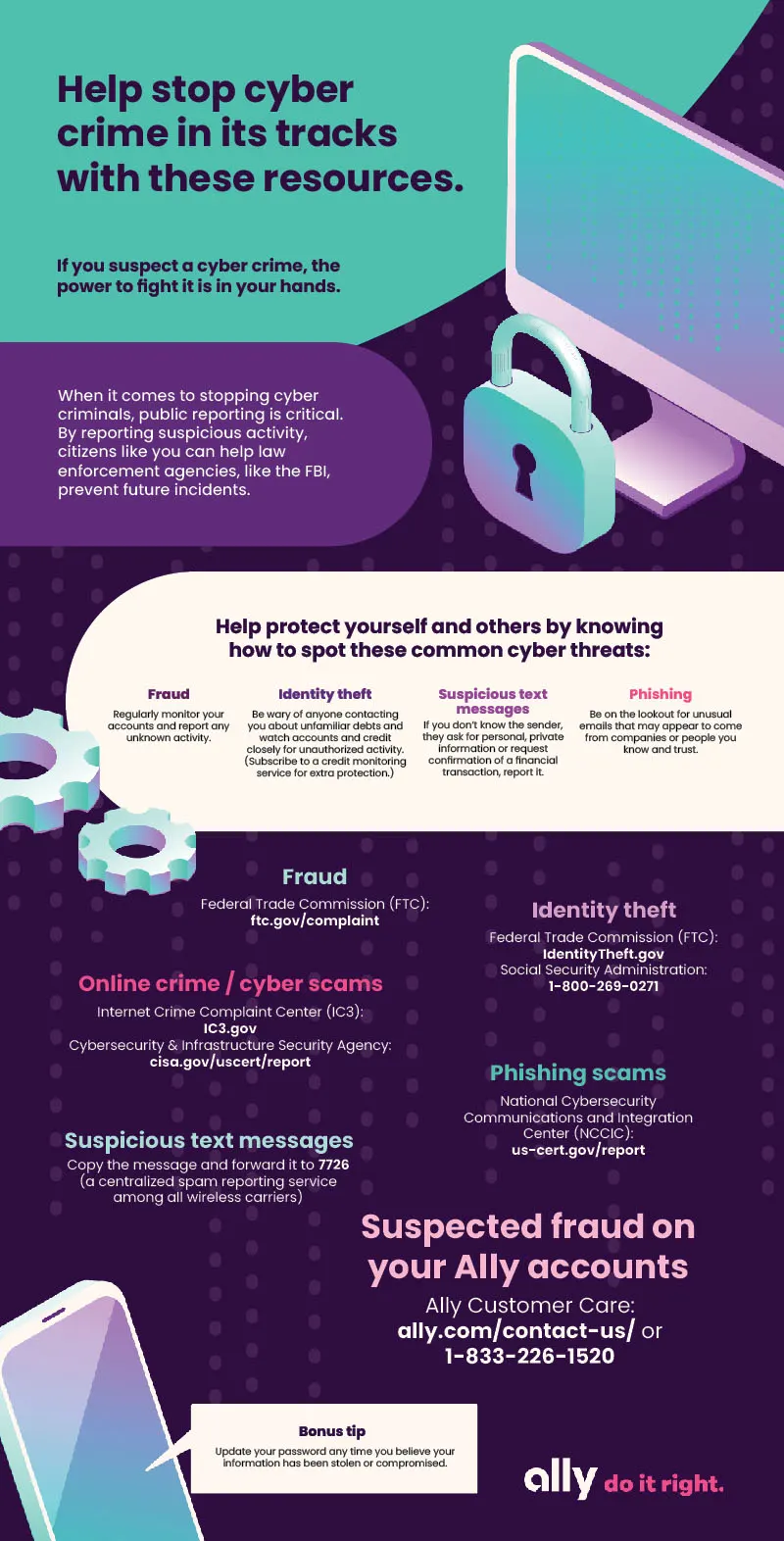A FEW THINGS YOU SHOULD KNOW
Ally Financial Inc. (NYSE: ALLY) is a leading digital financial services company, NMLS ID 3015. Ally Bank, the company’s direct banking subsidiary, offers an array of deposit, and mortgage products and services. Ally Bank is a Member FDIC and Equal Housing Lender , NMLS ID 181005. Credit products and any applicable Mortgage credit and collateral are subject to approval and additional terms and conditions apply. Programs, rates and terms and conditions are subject to change at any time without notice.
, NMLS ID 181005. Credit products and any applicable Mortgage credit and collateral are subject to approval and additional terms and conditions apply. Programs, rates and terms and conditions are subject to change at any time without notice.
Ally Servicing LLC, NMLS ID 212403, is a subsidiary of Ally Financial Inc.
The information contained in this article is provided for general informational purposes and should not be construed as investment advice, tax advice, a solicitation or offer, or a recommendation to buy or sell any security. Ally Invest does not provide tax advice and does not represent in any manner that the outcomes described herein will result in any particular tax consequence.
Prospective investors should confer with their personal tax advisors regarding the tax consequences based on their particular circumstances.
Securities products and services offered through Ally Invest Securities LLC, member FINRA/ SIPC. For background on Ally Invest Securities go to FINRA’s Broker Check. Advisory services offered through Ally Invest Advisors Inc., a registered investment adviser. Ally Invest Advisors and Ally Invest Securities are wholly owned subsidiaries of Ally Financial Inc. View Invest disclosures. Securities products are NOT FDIC INSURED, NOT BANK GUARANTEED and MAY LOSE VALUE.
Options involve risk and are not suitable for all investors. Review the Characteristics and Risks of Standardized Options brochure before you begin trading options. Options investors may lose the entire amount of their investment or more in a relatively short period of time.
Trading on margin involves risk. You can lose more funds than you deposit in a margin account. Please review Ally Invest’s Margin Account Agreement and Disclosure for more information regarding margin trading.
Before you invest, you should carefully review and consider the investment objectives, risks, charges and expenses of any mutual fund or exchange-traded fund (“ETF”) you are considering. ETF trading prices may not necessarily reflect the net asset value of the underlying securities. A mutual fund/ETF prospectus contains this and other information and can be obtained by emailing support@invest.ally.com.
While the data Ally Invest uses from third parties is believed to be reliable, Ally Invest cannot ensure the accuracy or completeness of data provided by clients or third parties.
Ally credit cards are issued by Ally Bank, Member FDIC. Mastercard and the circles design are registered trademarks, and Mastercard ID Theft Protection is a trademark, of Mastercard International Incorporated. ©2025 Mastercard. All rights reserved. Certain terms, conditions, and exclusions apply. Cardholders need to register for this service. This service is provided by Iris® Powered by Generali.
FICO® is a registered trademark of the Fair Isaac Corporation in the United States and other countries.
App Store is a service mark of Apple Inc. Google Play is a trademark of Google Inc.
Zelle and the Zelle related marks are wholly owned by Early Warning Services, LLC and are used herein under license.
Ally and Do It Right are registered service marks of Ally Financial Inc.




